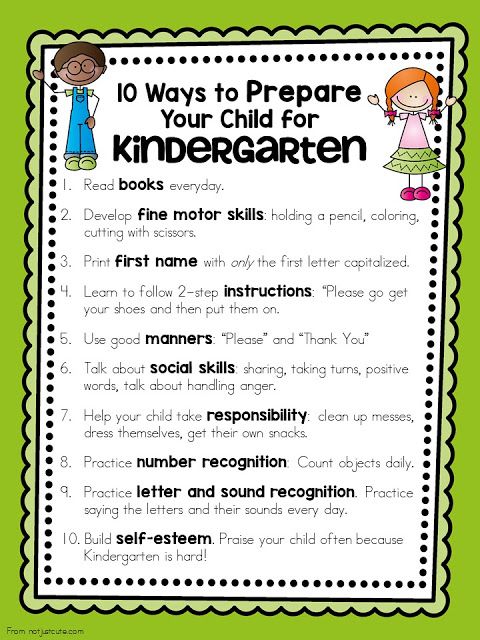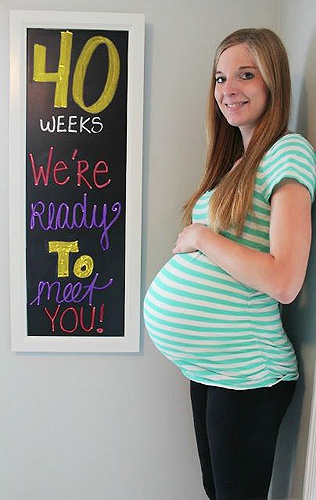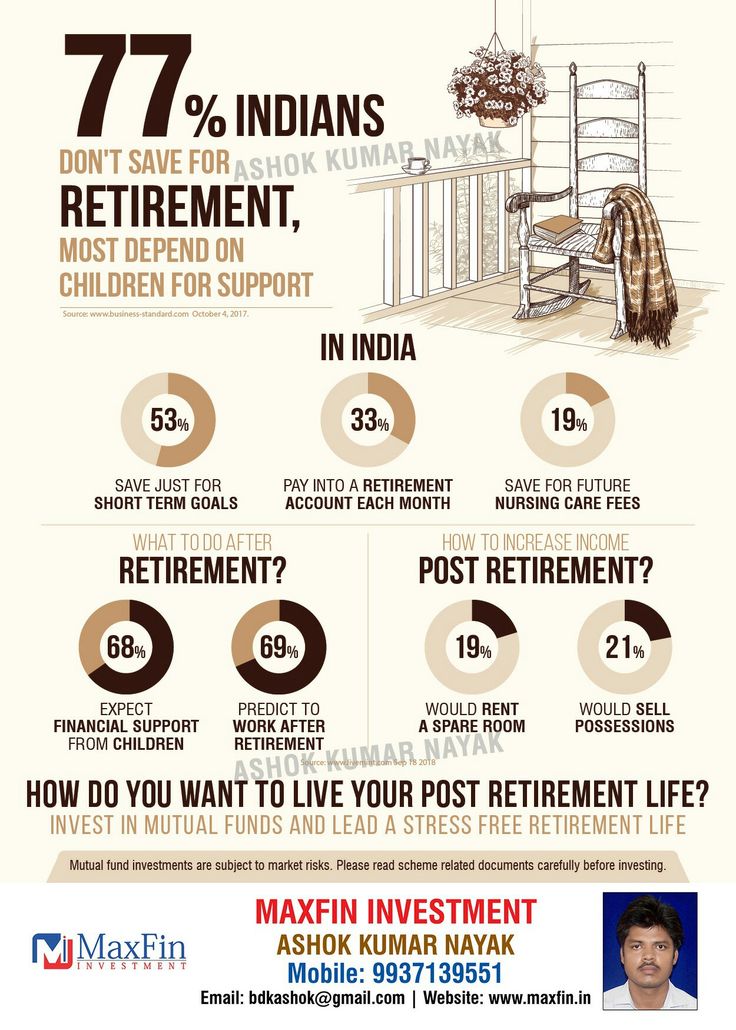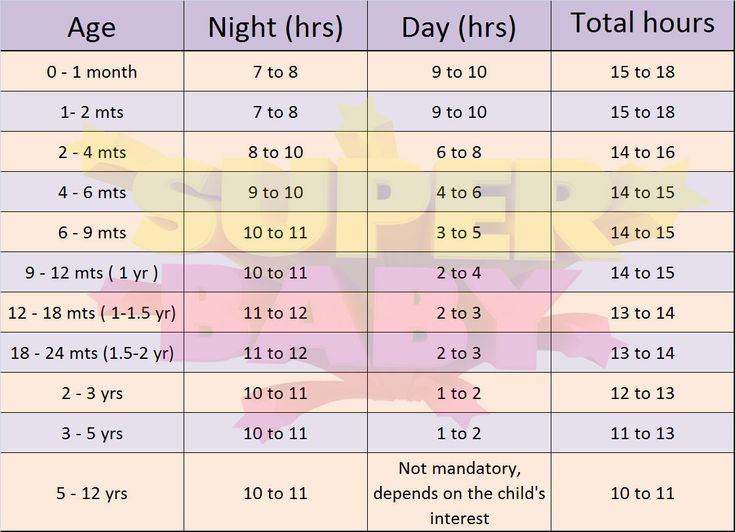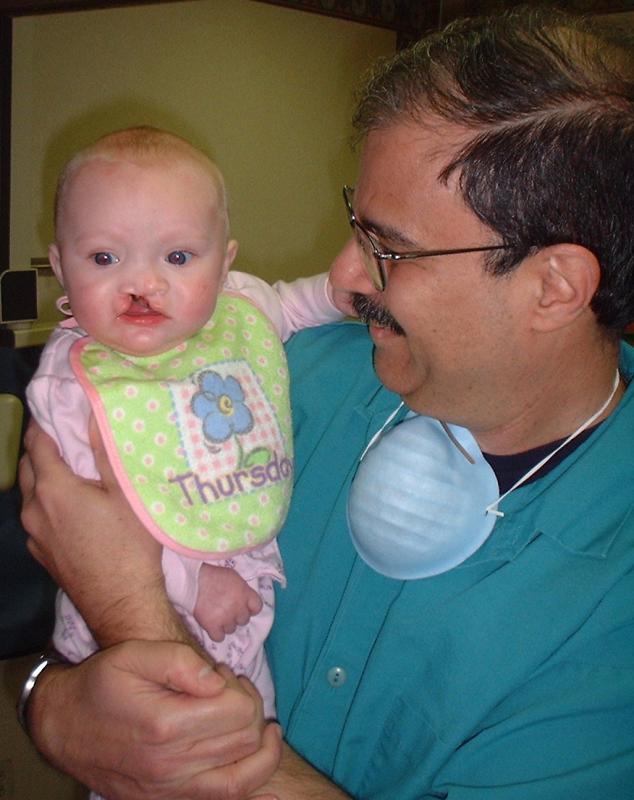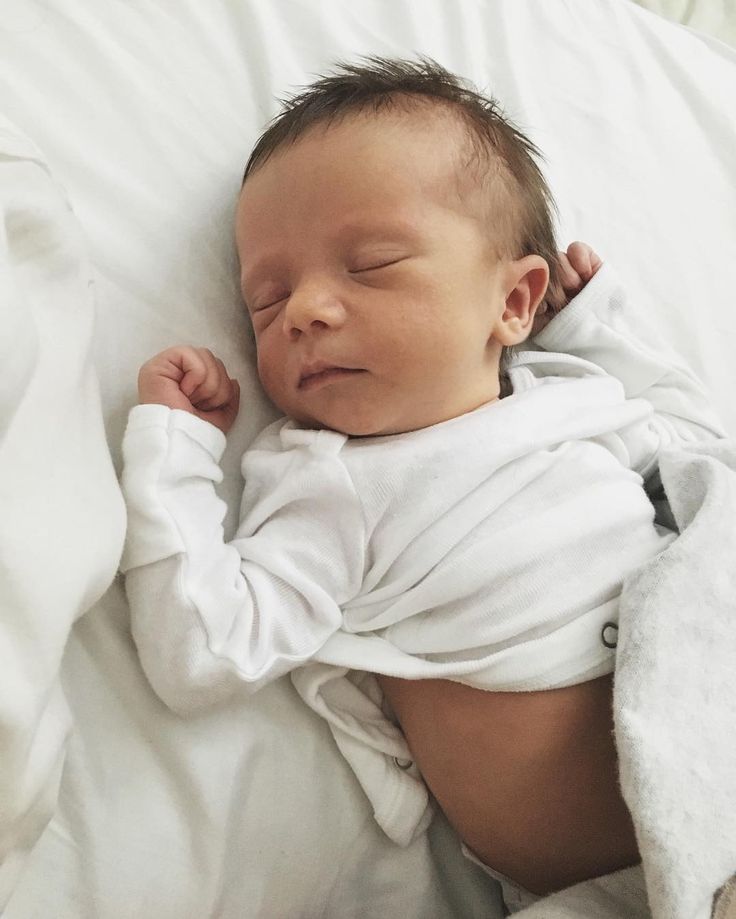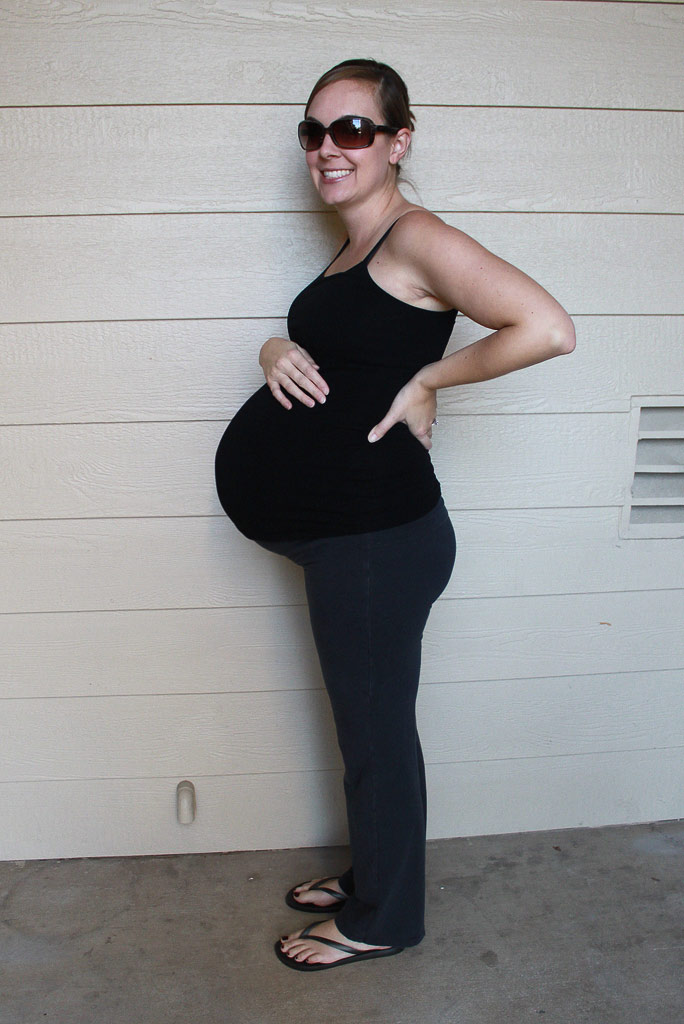How to help your child prepare for kindergarten
How to Get Your Child Ready for the First Day of Kindergarten
Kindergarten is a major step for young children — their first day of “big kid” school. As exciting as this time may be for some, many kindergarteners struggle initially with the long days, challenging curriculum and time spent away from loved ones.
To get your student ready to learn, child psychologist Amie Bettencourt from the Division of Child and Adolescent Psychiatry offers helpful tips.
What can parents do to help prepare?
Establish strong routines at home.
Routines help children learn, make them feel safe and in control of their world, and foster their self-confidence and sense of belonging within the family. Some key family routines that will help children feel ready for kindergarten include:
Bedtime Routines
Bedtime routines ensure kids get a good night’s sleep and will be ready for the next day’s adventures. Some important parts of a bedtime routine include a consistent bedtime and a predictable order of activities (e. g., take a bath, put on pajamas, brush teeth, read favorite story or sing favorite song, get a goodnight hug or kiss from their caregiver).
Reading Routines
Parents are encouraged to read with their children for at least 20 minutes a day to build language and literacy skills. This reading routine can be part of the bedtime routine or at another time convenient for you and your child. A good way to make this time child-centered (and increase your child’s enjoyment and engagement in this time together) is by letting your child pick out the book.
Family Mealtime Routines
Having a family mealtime routine is not only an opportunity to teach your children about healthy eating habits, but is also a chance to spend quality time talking with your children, which builds their language and strengthens their relationship with you. You can also build in routines around mealtime that will be useful to your children in school, such as washing your hands before dinner or teaching them how to clear dishes from the table.
Stay up to date with vaccinations.
Take your child to the pediatrician for a checkup, and make sure all immunizations needed for kindergarten are up to date.
Tell your child what to expect.
Talk to your child about what kindergarten will be like to help them start preparing for this big transition. Children often have lots of questions about kindergarten, particularly if they are starting at a new school.
- Spend time talking with your child about what kindergarten will be like (e.g., who will be the teacher, what will the daily school routine look like, etc.).
- Involve him or her in picking out their school materials (e.g., backpack, clothes, etc.).
- You can also talk about what going to kindergarten was like for you as a way to model how your child can share feelings about kindergarten.
Once school begins, what are some conversation starters parents can use to get their child talking about school?
Ideally, talking with your child about school should be part of your family’s daily routine. Talking with your children not only gives you an opportunity to learn what they are doing in school and how they feel about school, but also provides an opportunity for you to communicate that school is important.
Talking with your children not only gives you an opportunity to learn what they are doing in school and how they feel about school, but also provides an opportunity for you to communicate that school is important.
But getting conversations started with your young child about school is not always easy, as some children provide very little detail in response to the question, “How was school today?”
So here are a few other ways that you can get the conversation started with your children about school:
- Ask your children to tell you one new thing they did or learned about in school that day.
- Ask your children to tell you one thing they liked and one thing that was difficult about school that day.
- Ask your children about who they played with in school and what games they played.
- Create a family routine around talking about your day. For example, during mealtime or another time when you are spending time with your children, you can model how to talk about your day by sharing one or two things that you did that day and then asking your children to share one or two things about their day.
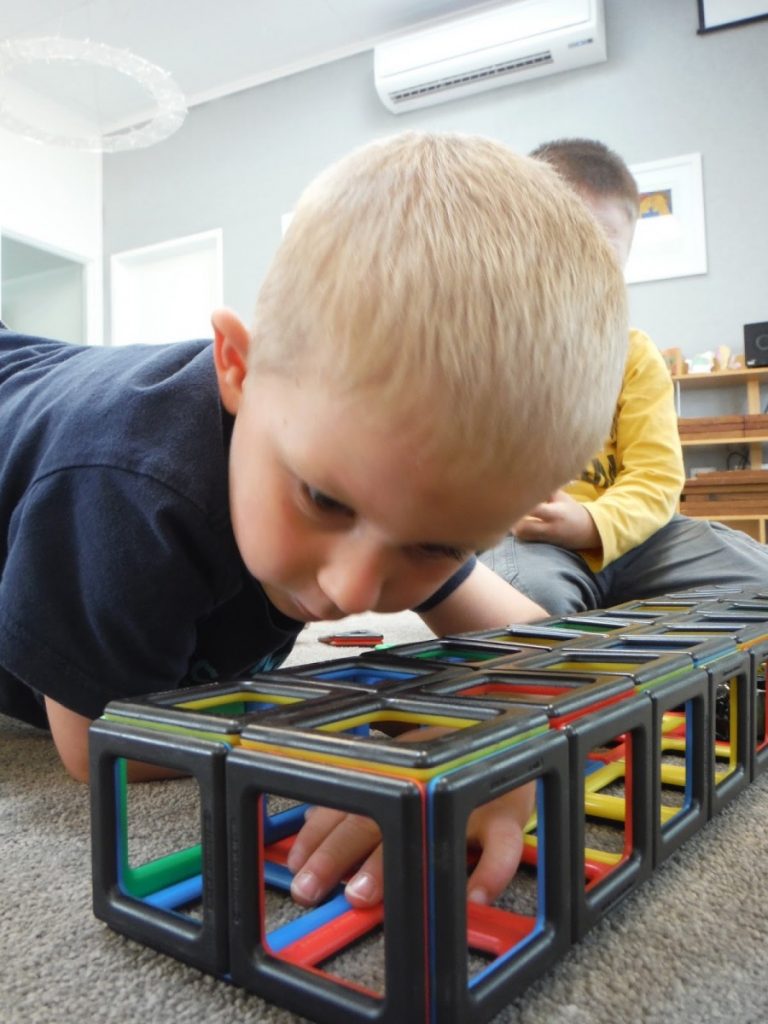
What specific aspects of kindergarten do new students struggle with?
Kindergarten is much more rigorous today than when most parents were growing up. In fact, children spend much more time engaged in structured reading and math activities than time spent in socialization and play-based learning. As a result, there is a mismatch between a child’s developmental stage and the academic skills he or she is required to master. Below are some of the issues that new kindergarteners may struggle with:
- A longer school day . Many children transition to kindergarten from half-day preschool programs, so spending a full day of school engaged in structured activities can be a difficult adjustment for them.
- Transitions . Transitioning from one activity to another is challenging for most young children, particularly when they have to stop a preferred activity (e.g., playing) to engage in something challenging (e.g., learning to read), and a typical kindergarten school day is full of these transitions.

- Sitting still and paying attention for long periods of time. The format of kindergarten has become much more structured and passive in nature, meaning young children are being required to sit still and pay attention to their teacher and to schoolwork for longer periods of time. This can be challenging for many kindergarteners who are still developing self-control and skills that help them sit still, focus and follow directions.
What are signs that a child isn’t adjusting well to kindergarten?
- The teacher reports that your child is having significant difficulty listening and following directions at school.
- Your child becomes verbally or physically aggressive toward peers or school staff.
- Your child has frequent temper tantrums at school.
- Your child expresses reluctance about getting ready for school in the morning. This may manifest as taking a long time to get ready in the morning, or saying things like “I don’t want to go to school” or “I don’t like school.
 ”
” - After a month or more of school, your child is still very tearful and clingy with you when you drop him or her off at school in the morning.
- Your child appears more sad, worried or irritable than before school started.
- Your child is having repeated daytime toileting accidents while at school.
At what point should parents consider seeking professional help?
- Your child is engaging in frequent disruptive behaviors at school (e.g., temper tantrums, verbal or physical aggression toward school staff or other children, destruction of classroom property, leaving the classroom without permission, etc.).
- Your child is frequently getting in trouble at school.
- Your child is displaying a lot of anxiety about school, which may take the form of expressed worries about teachers, peers or schoolwork and significant efforts to avoid going to school.
- Your child is more frequently tearful, sad or irritable and reports less interest in activities he or she typically enjoys since school started.
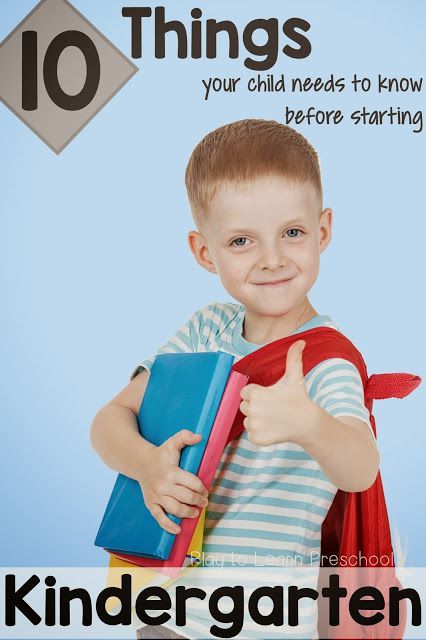
- Your child is having frequent toileting accidents at school despite being toilet trained for some time.
How to Prepare Your Child for Kindergarten
Kindergarten is a big change kids will face. Learn 12 ways to prepare your child for kindergarten that will help her adjust to a new school.
Even if your child had been going to preschool, transitioning to kindergarten can still feel nerve-wrecking.
She’ll meet new friends and teachers she’d never seen before. The school will have a different schedule than what she’d been used to. And the campus itself—already so big compared to preschool—can feel intimidating.
No wonder preparing for kindergarten can feel daunting—for both parent and child.
12 ways to prepare your child for kindergarten
Despite the years my kids had spent in preschool, kindergarten felt like a whole new world. They’d attend morning assembly with 500+ other students—all of them older.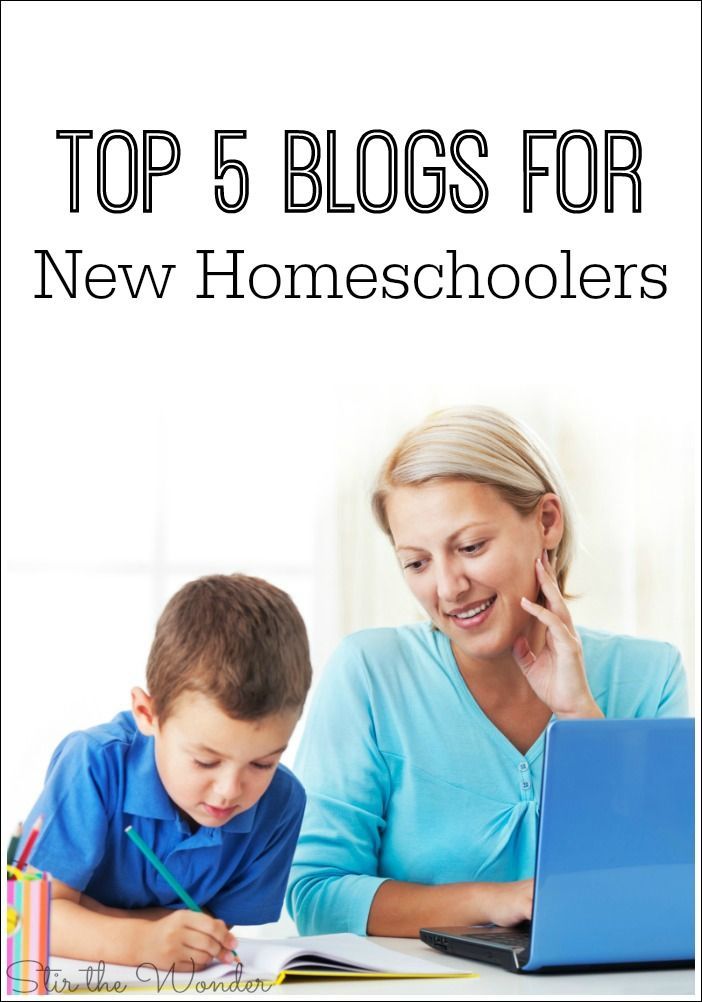 They’ll hear school bells announcing recess and lunch. I worried how they’d fare on the playground, with many more kids to contend with.
They’ll hear school bells announcing recess and lunch. I worried how they’d fare on the playground, with many more kids to contend with.
Thankfully, you can do plenty at home to prepare your child for kindergarten.
You can change your daily habits to mimic what to expect, and show her that kindergarten can be an exciting and seamless change. Take a look at what you can do right at home, whether she’s been in preschool or not:
1. Give your child chores
Your child’s kindergarten teacher will assign simple tasks to the students, like putting mats away or turning on the lights. Start your child on general chores around the house, from picking up toys and putting clothes in the hamper.
If she seems keen or able to do any task, assign it to her. The tasks will take longer than if you were to do them (15 minutes to wipe down the table?!). But you’re nurturing self-sufficiency skills and promoting a community-minded mentality.
Free printables: One fantastic way to track her chores is through writing it down. Join my newsletter and grab your Printable Chore List templates to help the both of you organize chores!
Join my newsletter and grab your Printable Chore List templates to help the both of you organize chores!
2. Get familiar with the school
Few schools will allow students to tour the campus the way you might a preschool. In fact, the first time she’ll meet her kindergarten teacher will likely be on the first day of school. How can you help her get familiar with the school, even during the summer?
- Walk around the building. You might spot the playground, the school garden, or the restrooms
- Attend back-to-school night. Many schools will open their classrooms for a meet and greet with the teachers before the first day of school. That way, she’ll get to see her classroom and meet her teacher ahead of time.
- Find her teacher’s photo on the school’s website. Many schools will show photos of the teachers and even offer a brief bio. Once you know the class she’s assigned to, you can find her teacher on the website.

3. Read every day
I can’t say enough about the benefits of reading. Read together, both with you reading aloud and encouraging her to sound words as well. Get her excited about story time and learning, and borrow books from the library so she can cycle through stories every week.
Read books about kindergarten—the stories will help her get excited for school and ease her fears.
Sing or play the ABC song so she knows the order of the alphabet. And count up to the number 12 (that’s the number my son’s school suggested that kindergartens should know before school starts).
4. Practice using safe scissors
If your child hasn’t been practicing cutting paper, now is the time to start trying.
Buy child-safe scissors, along with sturdy, thick paper. Have her cut straight lines across the paper, or you can draw shapes she can cut out.
As always, make it fun! For instance, glue the pieces she cuts onto another piece of paper or poster as an art piece.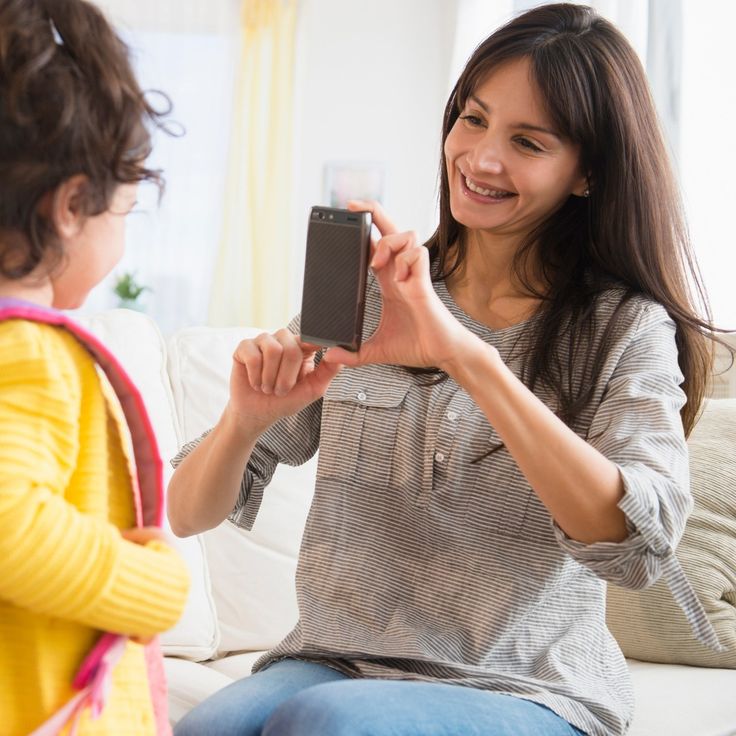
5. Encourage social skills
Turn-taking, listening, and following the rules are important social skills in kindergarten.
If your child has siblings, cousins, or play mates, guide him through proper social conducts. Don’t force them to share, but encourage turn-taking and playing together as an alternative.
Enforce good listening, so that if someone is talking, he has to wait his turn before speaking. And acknowledge him when he follows rules and instructions.
And remind him to be kind. He’ll meet many new people—some nice, others not. Some might show familiar and common traits, while others will feel like a culture shock.
Explain that it’s fine to disagree, to feel hurt, and even to feel frustrated, but we can’t be mean. Teach him coping methods like telling someone “stop,” walking away, or telling an adult.
And as always, teach empathy. Mention other people’s emotions and how they relate to his. Remind him to put himself in other people’s shoes and think about what they must feel like.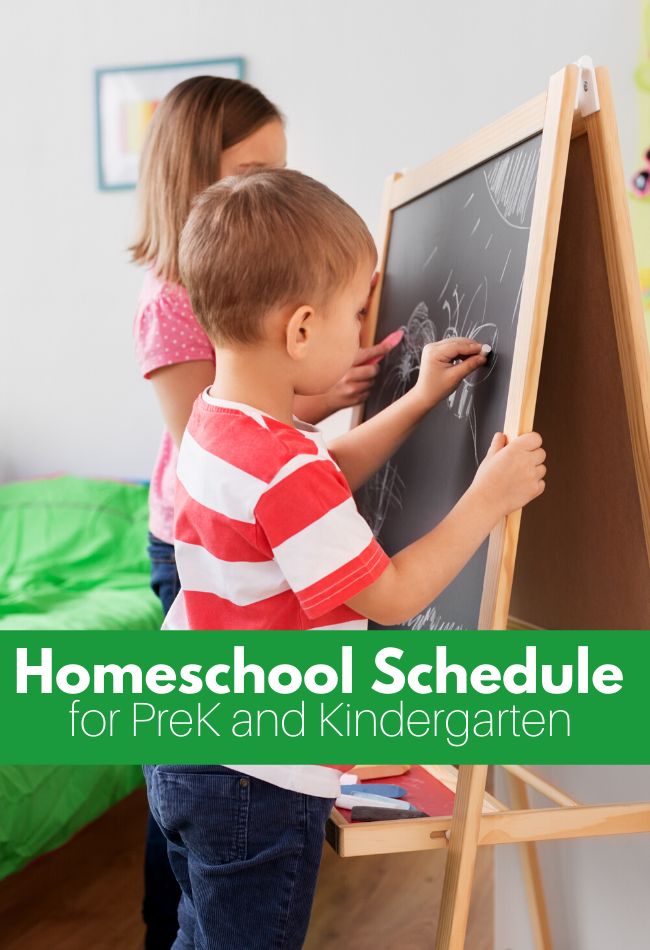 And say how his actions can affect others around him.
And say how his actions can affect others around him.
6. Sleep (and wake up) early
A few weeks before school starts, your child should sleep at a decent hour—many sleep experts recommend no later than 8:30pm. That should be enough time to sleep through the night and early enough to feel refreshed in the morning.
You might have to adjust bedtime and wake up time depending on when you plan to leave the house. Wake your child at least an hour or an hour and a half before you leave. This should give her enough time to wake up and squeeze in some play or downtime before leaving for school.
7. Practice putting on their own clothes
Still helping your kiddo pull his legs through his pants? Help him become more self-sufficient. Kindergarteners are more independent than preschoolers and can learn how to put most of their own clothing on.
Show him where the tag is on each pair of pants or shorts and explain that that goes in the back. Show him how to pull his shirt down over his head, and how to slip his arms through sweaters and jackets.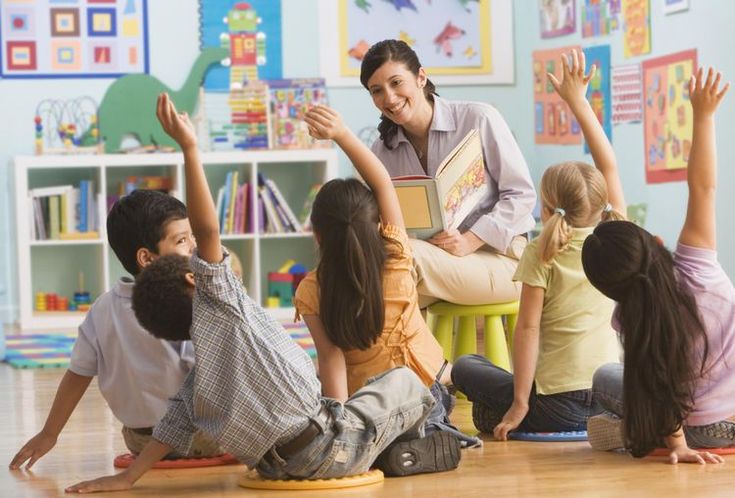 Practice buttoning pants and shorts.
Practice buttoning pants and shorts.
Not only will he be able to dress himself in the mornings, he’ll also be able to use the restroom with ease or remove his jacket as needed.
Learn about how to teach your child to dress himself.
8. Start your mornings with a good breakfast
Breakfast should be easy and simple but healthy and filling as well. Teachers love it when kids come to school after having eaten a hearty breakfast, since this helps them stay alert and avoid hunger.
Our weekday breakfasts are pretty consistent and simple, and include:
- Oatmeal with milk and chopped dates, paired with a fruit
- Yogurt parfait with granola, honey, and chopped fruit, along with toast
- A bowl of cereal and milk with a side of fruit
Each morning should start with a healthy breakfast. Your child will feel less sluggish during the day and will be able to stave off hunger.
9. Discuss the logistics
Even if you’re not familiar with the school yet, talk about the logistics that you do know about.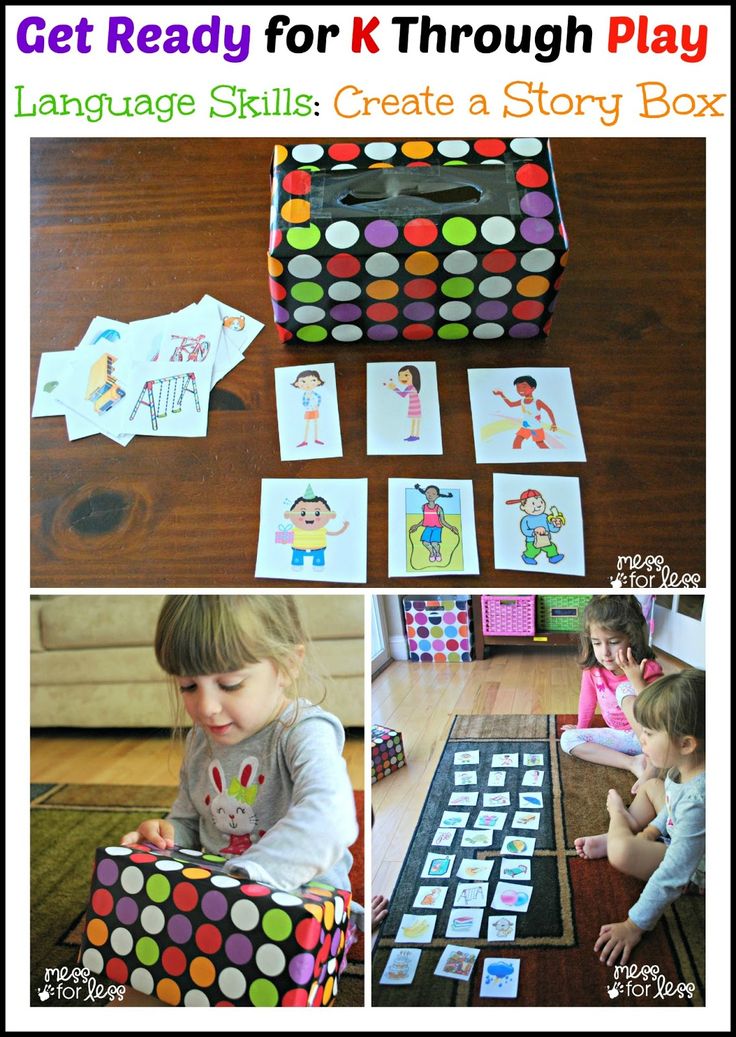 For instance, what will your child eat for lunch—will it be cafeteria food or a lunch she brings from home? Which food will she be eating for snack during recess?
For instance, what will your child eat for lunch—will it be cafeteria food or a lunch she brings from home? Which food will she be eating for snack during recess?
Talk about what the morning assembly might look like, and how she’ll line up along with the rest of her classmates. Explain that she has her water bottle in her backpack any time she feels thirsty.
Then, discuss what will happen after school. Who will pick her up, at what time, and where? Will she be going to an after-school program? If so, where is that located?
While you don’t want to overwhelm her with too many details, give her just enough so she knows what to expect.
10. Arrive on time
This should be a rule for every day, but it’s a must on the first few days of kindergarten. Arrive on time (or, if you’re like me, arrive earlier than later).
After all, you might not be familiar with the campus, either. Give yourself plenty of time to find parking, find and meet his teachers, and get him settled into class.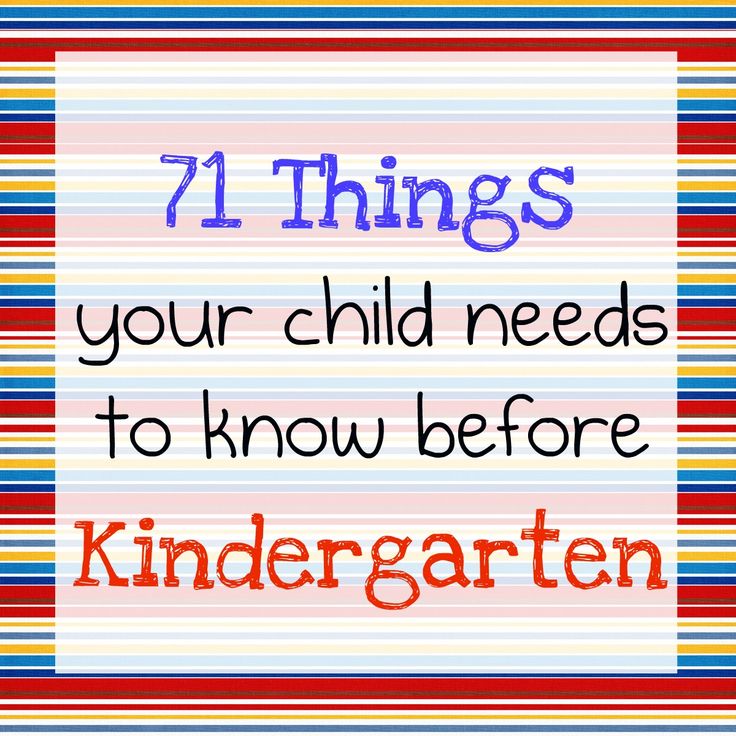
There’s nothing worse than feeling like you’re late and rushing through your morning. With plenty of time in the morning, any hiccups you face—a forgotten water bottle, getting lost—won’t feel so bad.
11. Leave your child cheerfully
Many schools will welcome parents on campus for the first few days, whether to attend morning assembly or even enter the classroom. But I highly recommend that you not linger for too long. Your child might cling onto you even more because you continue to stay and comfort her.
Instead, leave after she’s settled or when the teacher says to—all without drama. She needs to know she’s in safe hands, not in an environment where you have to comfort her. In leaving swiftly but cheerfully, you reassure her that she should be in class and that you’re happy she’s in school.
12. Embrace this exciting new change in your child’s life
Your child will take his cues from you. When you worry, he’ll worry. But when he sees you excited for him, then he’ll enter kindergarten with a positive mentality.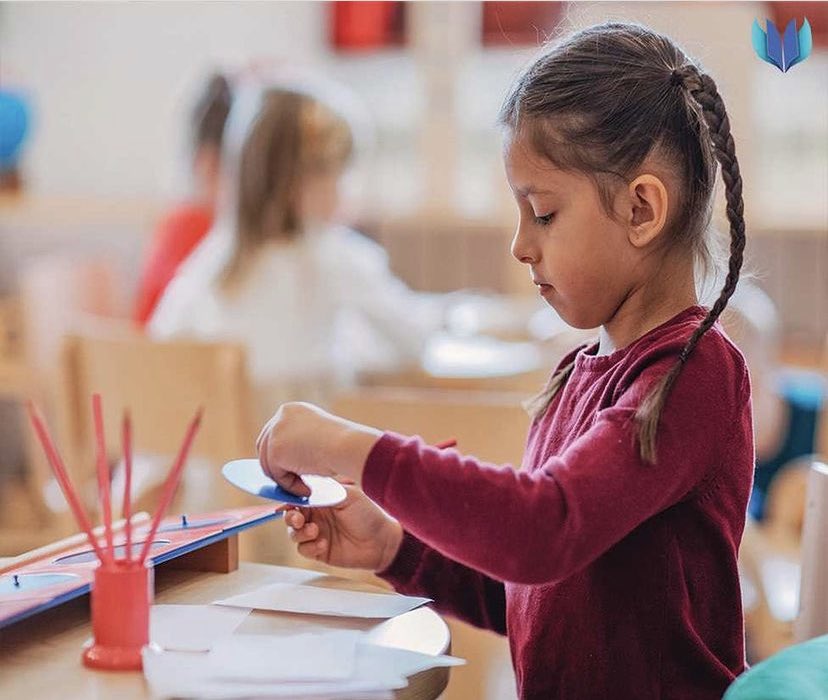
It’ll be scary, no doubt. He’ll have no idea where the restrooms are, or when lunch time will be. He won’t know if the teacher is kind or if the other students will play with him.
But with your support, he’ll come better prepared to enter this new and exciting change. There may be some tough days (“I don’t want to go to school anymore!”). But he’ll remember kindergarten and thrive in its environment.
Conclusion
Going to kindergarten can feel nerve-wrecking for both parent and child (“Wasn’t she just two-years-old a second ago?”). But with these tips, you can make that transition much smoother for everyone.
Assign her chores at home so she can contribute in the classroom. Get familiar with the campus so it looks familiar on the first day of school. Read every day, and practice using child-safe scissors. Encourage good social skills, whether with her siblings or other friends.
Sleep and wake up at a decent around, and encourage her to dress herself, especially when using the bathroom or putting on a jacket.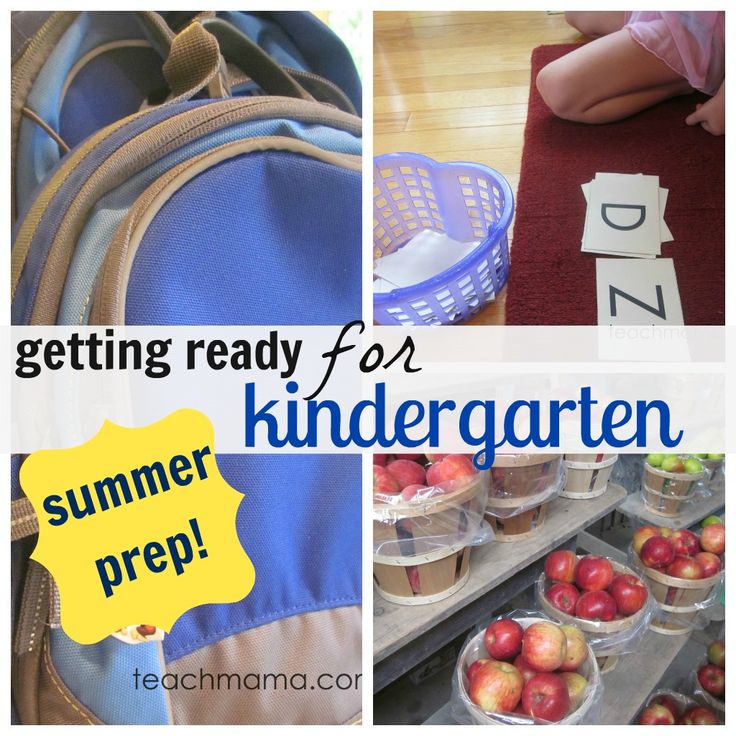 Start your mornings with a good breakfast so she’s alert and ready to go. Talk about the logistics you know, from school pick up to handling lunch.
Start your mornings with a good breakfast so she’s alert and ready to go. Talk about the logistics you know, from school pick up to handling lunch.
Arrive on time (or even earlier) so you don’t rush. Leave cheerfully so she can sense your confidence. And embrace this new chapter in her life—she’ll take your cue from you and face kindergarten with the same gusto.
Kindergarten can feel daunting, but now she’ll know what to expect—and learn to love this new chapter in her life.
Get more tips:
- What Every Kindergartener Should Know by the End of the Year
- Children’s Books about Kindergarten
- How to Deal when Your Child Cries at Drop Off
- The Best Children’s Books That Introduce Kids to Math Concepts
- Cool Science Kits for Kindergarten Kids
Don’t forget: Join my newsletter and grab your Printable Chore List templates—at no cost to you:
How to prepare a child for going to kindergarten: 16 tips
Natalya Kalashnikova asked child and family psychologist Liana Natroshvili about how to mitigate adaptation to kindergarten and make this difficult period easier for both children and parents.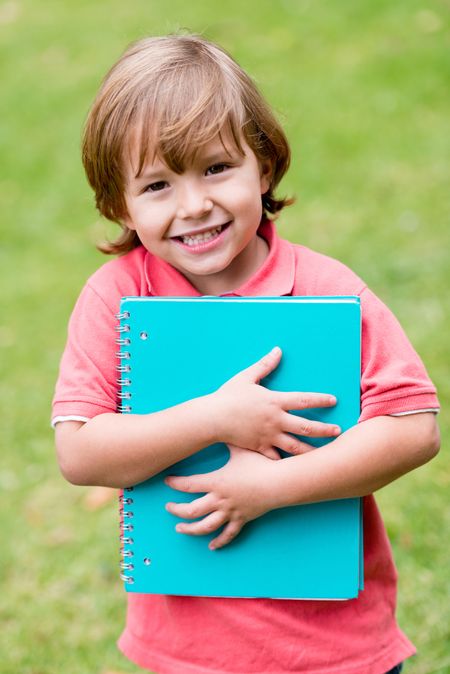
Natalia Kalashnikova
Columnist
You don't need to accustom your child to independence in advance! No need to pull the sprout up to grow faster. Children develop best in an atmosphere of love and warmth.
Therefore, in the last summer, nourish the child with your love, take it on vacation if it is planned. Play with him, walk, draw, sculpt. Let the baby be happy with life, carefree and confident in your love and in the stability of life by the time he enters the kindergarten!
It's not bad just to walk with the child past the kindergarten. On business - to the store, for a walk ... So that the child wants to go there - to those playgrounds, to play with those children. This technique works well with active kids who love playgrounds and children's companies.
Ask the head of your kindergarten for permission to take your child for a walk around the kindergarten.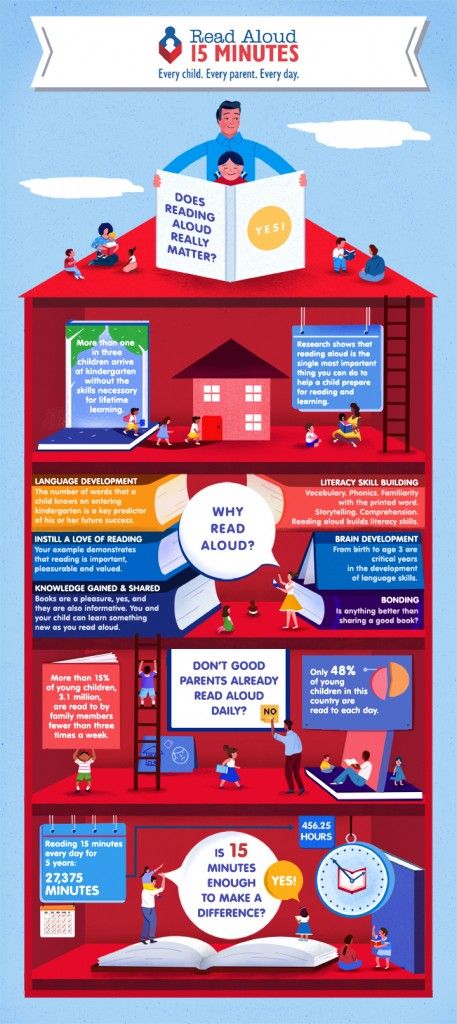 It’s better when it’s empty, not during a general children’s walk, so that you don’t have to explain to the child why you can’t go to children (but you can’t to children).
It’s better when it’s empty, not during a general children’s walk, so that you don’t have to explain to the child why you can’t go to children (but you can’t to children).
Ask permission to view the group (may not be allowed).
Meet the teacher. The teachers have two months of vacation, and you will have time to get to know her either now, in June, or in the second half of August. You can arrange with the teacher so that she gives the baby, as if from herself, a surprise prepared by you in advance. Let the child settle down to her!
If your child watches cartoons, you can casually turn on cartoons where children and animals go to kindergarten - about Lolo the penguin, about Peppa pig.
Read books where the characters go to kindergarten so that the child perceives kindergarten as the norm of children's life, this will help him (even if you yourself do not consider it the norm and going to kindergarten is forced). For example, Karlchen goes to kindergarten.
For example, Karlchen goes to kindergarten.
There is a book that is completely devoted to the relationship between the child and the garden - "Once upon a time Serezha" by Oksana Stazi, part two. In total, there are fifty stories in the book, of which six are what you need: "Kindergarten", "Seryozha does not want to go to kindergarten", "Why Mom was late", "What to do in order not to quarrel", "What every mother is worried about "," I want it to be Saturday. The first story is good to read before going out into the garden. The rest - as problems arise.
Explain the difference between boys and girls, if not already explained, so that the child does not get shock in a shared toilet.
Preparing skills:
Slowly teach your baby to dress himself. Do not force, so as not to cause rejection, but rejoice at every button fastened on your own and every shoe you put on on your own. Positive reinforcement is the most effective.
Positive reinforcement is the most effective.
Tip! When buying clothes, choose the ones that the child can wear himself.
Drawstring pants are better than jeans. T-shirts are better than shirts with small buttons. It is useful to fasten buttons, of course, but no one in the garden will wait until the baby copes with them, they will start to rush him, and the baby will be nervous. Take dresses for girls without buttons and buttons on the back. Velcro shoes are better than buckles, winter shoes are without laces. When trying on shoes in the store, let the baby put on and take off his shoes on his own. It turns out?
It is important that the baby can go to the toilet by himself - sit on the toilet so as not to wet his clothes, and then put on everything in the correct order - first panties, then pants.
To the fact that at first you will have to pay more attention to the child at home. Make time for this if possible. The best thing for successful adaptation to the garden is parental love and attention before leaving and immediately after the kindergarten.
Make time for this if possible. The best thing for successful adaptation to the garden is parental love and attention before leaving and immediately after the kindergarten.
Tantrums after kindergarten are normal! There is no need to cut them off and ban them. The child needs to release stress. And it is enough for mom and dad to be affectionate and warm - yes, to caress and comfort the child during a tantrum. If you do not know what to say to the child, just hug him silently. And patience to you!
Unfortunately, children in the first year of kindergarten can get sick a lot. Prepare mentally for this. And think in advance who will sit with the child and how you will negotiate with the employer.
It would be nice to read articles about adaptation to the garden, listen to webinars. It helps.
It is important to understand that the level of stress hormones increases in a child in the first months of being in kindergarten, this affects the immune system, the general condition and behavior of the child.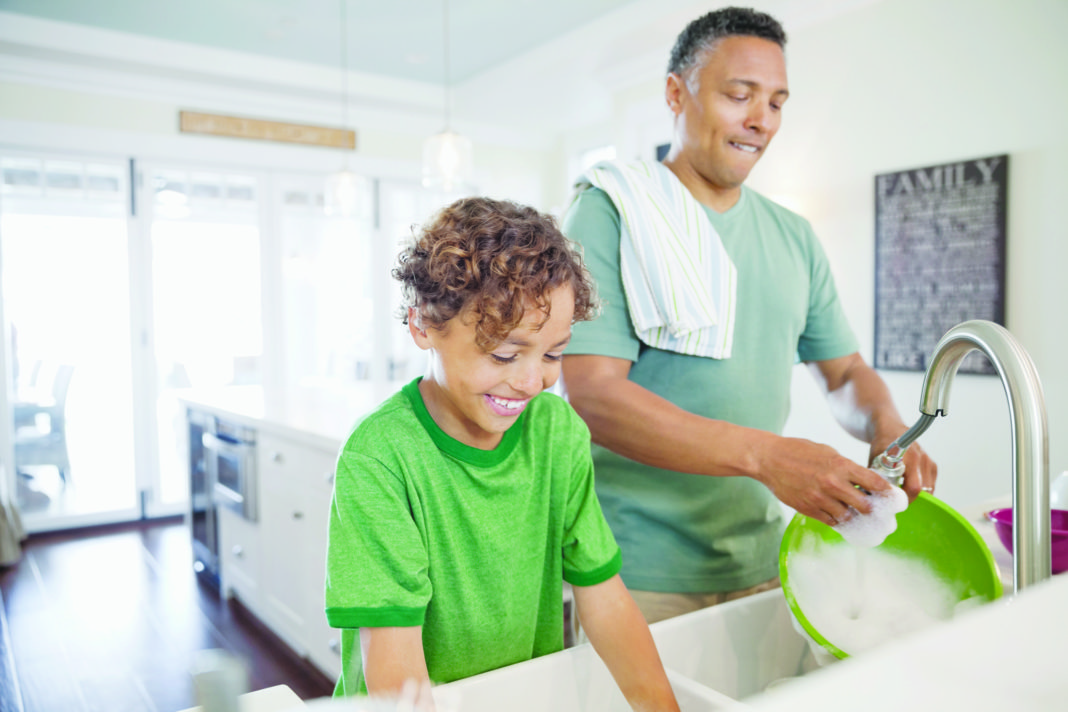
This means that parents temporarily have an additional burden of containing childhood experiences, treating common childhood illnesses and providing favorable conditions at home, even if the baby behaves badly.
It is important that all family members support the child and each other. Often, during the period of adaptation to the garden, not only children, but also parents face difficult experiences - anxiety, guilt, concern for the well-being of the child. At this stage, it is important to get help. Including the help of a specialist psychologist can come in handy if parents feel that they can’t cope, that they lack knowledge, support, and support.
The main thing for a mother is to find someone in advance with whom you can share your feelings after the child will not let you go in the morning, after a tough conversation with the teacher, after children's cries and insults.
The main thing for dad is to remember that the child needs not only mother's love, but also yours.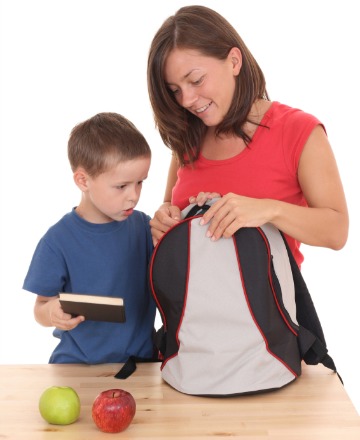 And that all the advice that is given in the articles on adapting to kindergarten for mothers applies to you as well.
And that all the advice that is given in the articles on adapting to kindergarten for mothers applies to you as well.
How to help a child adapt to kindergarten?
06/01/2016
Views: 21846
Where does kindergarten begin? Strange as it may seem, the kindergarten begins with parting, with the mother saying goodbye to the baby, from the moment when he is left alone with someone else's aunt and strangers. Therefore, we, parents, need to prepare both ourselves and the child for this difficult test.
Let's start with ourselves. We ourselves are often to blame for the fact that the baby is crying and does not want to let go of his mother's hand. We are very sorry for him, mentally we draw sad pictures: here he is crying, here he is not playing with anyone, and so on. We are indecisive, we do not leave and we are waiting for something. Stop! Set yourself up positively, even if your own kindergarten experience was far from joyful. After all, a kindergarten is a necessary "school" of life, and in it, as in life, there will be both joyful and sad moments.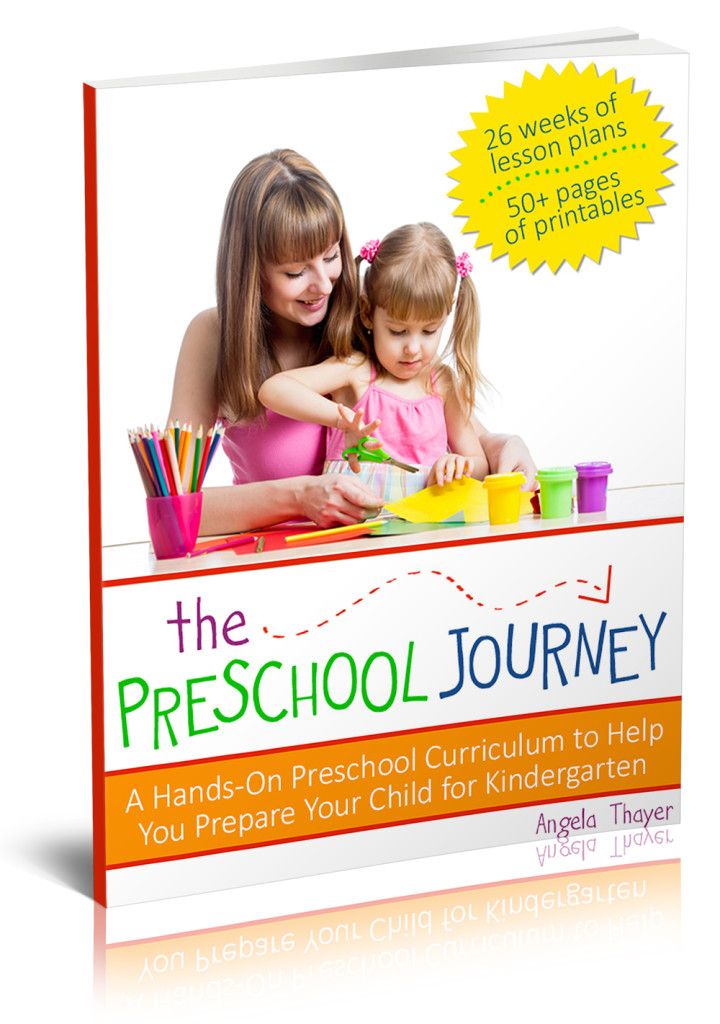
Indisputable advantages
The main advantage of the kindergarten is that the child gets the opportunity to communicate with peers. He does not just play, he gets an invaluable experience of interaction, sympathy, empathy, collective creativity and cooperation. All this prepares the child for later life. It is at this time that the formation of character takes place, the basic principles of life are laid.
Inevitable cons
In addition to the positive experience of communication, the child also receives negative models of behavior: some children learn to snitch, suck up, others learn to command and indicate, and others learn to obey. 8 hours of extreme stress of all forces, a small person simply can not stand it. He becomes aggressive, irritable, whiny. As a result of such an overstrain, the child becomes ill. Frequent colds are an inevitable companion of a kindergarten child.
Of course, it would be ideal to bring a child aged 4-5 years to kindergarten for half a day.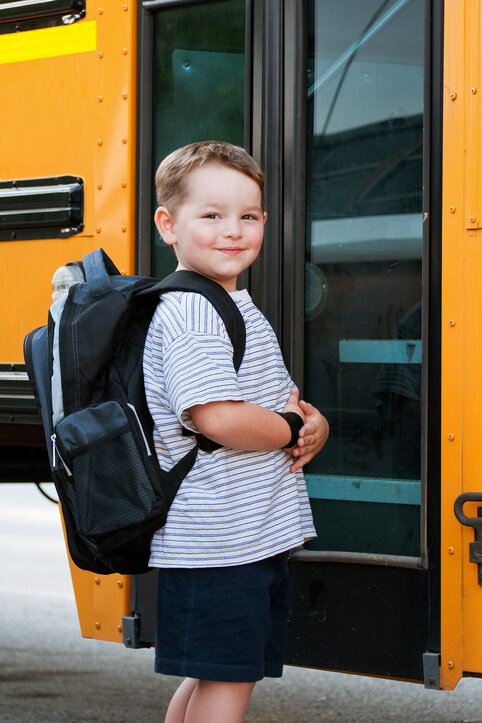 But, unfortunately, few working mothers today can afford it.
But, unfortunately, few working mothers today can afford it.
Getting ready for the first day
Start from afar. You need to prepare in advance for the idea of a kindergarten, the need to attend it. But this does not mean that we need to talk about it every day, do not turn this event into a problem.
Tell your child about the kindergarten, that there are a lot of children, new toys, swings, etc. If possible, go there, play on the playground, get to know the teacher. Create a mood of joyful expectation in your baby. At the same time, prepare him for the upcoming separation: practice short separations (to the store, to work). Create your own farewell ritual. The child must be sure that you always come back! In the early days, stay with him for some time in kindergarten, do not leave immediately. And when parting, be sure to say that you will return for him. As a rule, many children get used to the new conditions after a few days.
Before entering kindergarten, it is important to form a child's sense of self-confidence, and this is impossible without the development of independence.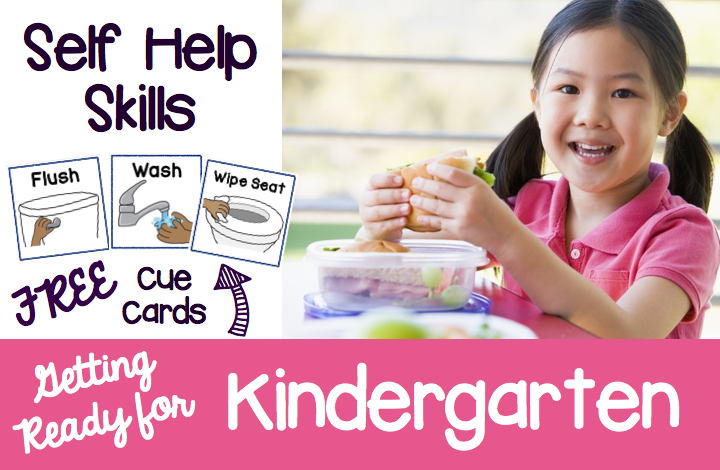 Observe the baby, whether he knows how to dress himself, sit on the potty, eat, play. Help him learn all these things. Play with your child the game "Let's get to know each other, let's play", role-playing games teach the baby to communicate, express their thoughts, build sentences. Of course, all children are different. A sociable and smiling baby in the kindergarten may turn out to be silent. It is impossible to unequivocally predict what the child's reaction will be and how this difficult period will develop in his life.
Observe the baby, whether he knows how to dress himself, sit on the potty, eat, play. Help him learn all these things. Play with your child the game "Let's get to know each other, let's play", role-playing games teach the baby to communicate, express their thoughts, build sentences. Of course, all children are different. A sociable and smiling baby in the kindergarten may turn out to be silent. It is impossible to unequivocally predict what the child's reaction will be and how this difficult period will develop in his life.
How soon will the child get used to kindergarten?
The average period of adaptation to kindergarten, according to experts, is 7-10 days at toddler age, 2-3 weeks at 3 years, and 1 month at senior preschool age. In a word, the older the child, the longer it takes him to get used to new conditions. Psychologists believe that the peculiarities of a child's getting used to a new environment depend on many factors: the type of nervous system and health status, personality traits, family atmosphere, conditions of stay in kindergarten..jpg) The greatest difficulties in adaptation are experienced by children with poor health, who quickly get tired of noise, have difficulty falling asleep during the day, and have poor appetite. It is hard to get used to kindergarten overprotective children who do not have self-care skills, anxious. It is easier for sanguine and choleric people to adapt to new conditions, for phlegmatic and melancholic people it is harder.
The greatest difficulties in adaptation are experienced by children with poor health, who quickly get tired of noise, have difficulty falling asleep during the day, and have poor appetite. It is hard to get used to kindergarten overprotective children who do not have self-care skills, anxious. It is easier for sanguine and choleric people to adapt to new conditions, for phlegmatic and melancholic people it is harder.
It is important for parents to know that some children cannot get used to kindergarten. Alarming signals that speak of the emotional distress of the child, that he suffers greatly in the conditions of kindergarten, is hard to endure parting with his mother, are a steady unwillingness to attend kindergarten, crying, whims in the morning, frequent illnesses, poor appetite, restless sleep. In older preschool age, poorly adapted children may even develop nervous symptoms in the form of nail biting, tics, and stuttering.
Why do children get sick so often in kindergarten?
In addition to psychological preparation, your baby must be ready for this difficult test and physically.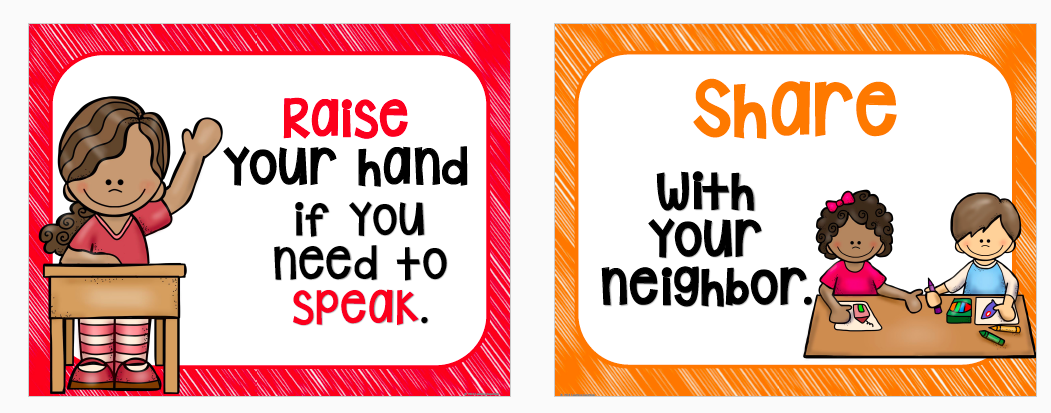 Each child must undergo a medical examination and take tests before attending kindergarten. So. The pediatrician has given you a conclusion that your child is ready to attend kindergarten. Excellent! But this does not mean at all that the baby will not get sick. All mothers are interested in the answer to the same question: “Why do children get sick so often?” Why they get sick is understandable. The child's body meets with unfamiliar bacteria, viruses. The immune system is formed, and this process is accompanied by SARS, runny nose. Thus, there is a "training" of immunity. But why does this happen so often? Psychologists will answer this question. Adaptation is usually difficult with a lot of negative changes in the child's body. These shifts occur at all levels, in all systems. The baby is in a special state, which psychologists call the "third state" between health and illness. This means that not today, tomorrow your child will either just get really sick, or will become himself again.
Each child must undergo a medical examination and take tests before attending kindergarten. So. The pediatrician has given you a conclusion that your child is ready to attend kindergarten. Excellent! But this does not mean at all that the baby will not get sick. All mothers are interested in the answer to the same question: “Why do children get sick so often?” Why they get sick is understandable. The child's body meets with unfamiliar bacteria, viruses. The immune system is formed, and this process is accompanied by SARS, runny nose. Thus, there is a "training" of immunity. But why does this happen so often? Psychologists will answer this question. Adaptation is usually difficult with a lot of negative changes in the child's body. These shifts occur at all levels, in all systems. The baby is in a special state, which psychologists call the "third state" between health and illness. This means that not today, tomorrow your child will either just get really sick, or will become himself again.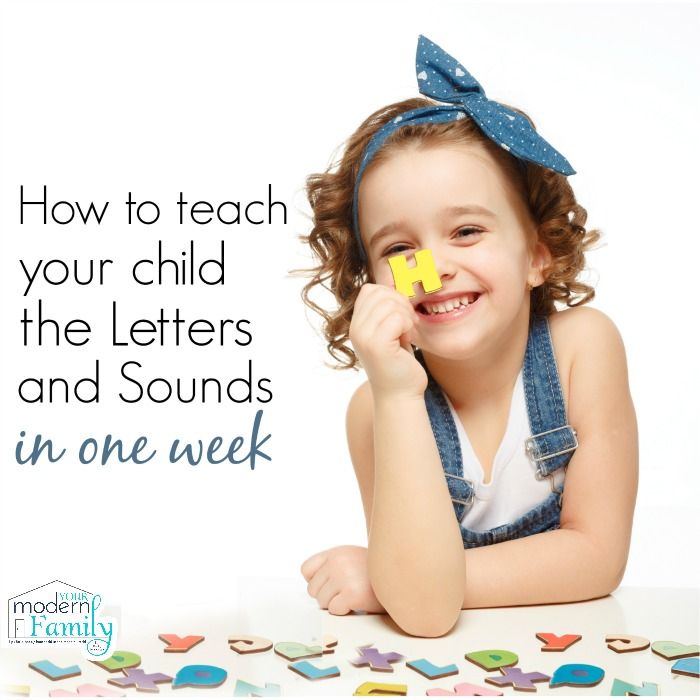 It all depends on the degree of stress. If it is minimal, you will soon forget about the negative shifts in the adaptation process and what worries you today. This will talk about easy or favorable adaptation. If the severity of stress is great, the child will obviously have a breakdown and presumably become ill.
It all depends on the degree of stress. If it is minimal, you will soon forget about the negative shifts in the adaptation process and what worries you today. This will talk about easy or favorable adaptation. If the severity of stress is great, the child will obviously have a breakdown and presumably become ill.
How to strengthen the child's defenses?
The best way to avoid numerous colds during the period of adaptation to kindergarten is hardening. It is best to start hardening procedures in the summer. It is easiest to do this: let the baby spend more time outdoors, bathe in natural reservoirs, run barefoot. It is important not to abandon this "useful thing" when the summer is over. Let the child walk barefoot at home, wash dishes, play with water. When going for a walk, dress it according to the weather. It's great if you organize regular visits to the pool.
Psychologists advise parents during the period of adaptation of the child to kindergarten:
1.